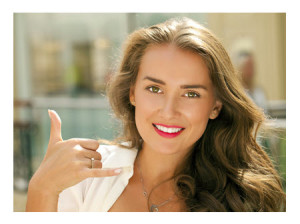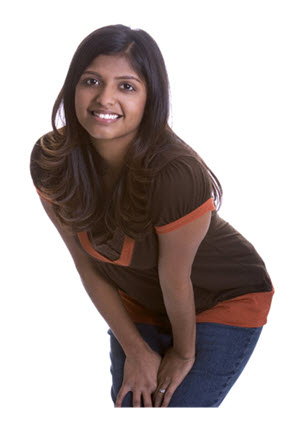This statement warrants thoughtful consideration: “When it comes to women, popular culture confuses pleasure and power.”
 Notions of beauty, pleasure and power are briefly discussed in the context of fashion models who parlay their looks into perks and adventures.
Notions of beauty, pleasure and power are briefly discussed in the context of fashion models who parlay their looks into perks and adventures.
Check out this article: “Who Runs the Girls?” by Ashley Mears, assistant professor of sociology at Boston University.
Describing time she spent observing the VIP-serving night life of New York (and elsewhere), Professor Mears explains the transactional nature of young models who are rounded up for the party circuit. This is painted as an enjoyable time for the “girls,” and yet it begs the question:
Does the celebrated display of female beauty and sexuality empower or exploit women?
Exploitation: One Profits on the Back of Another
While she doesn’t answer the question of exploitation directly – (nor will I will; the answer is likely “it depends”) – Professor Mears explains the functioning of the milieu in which she found herself:
V.I.P. night life is an industry run by men, for men, and on women… brought in to attract big-spending clients from among the young global elite, willing to spend thousands of dollars on alcohol. Girls rarely pay to be in V.I.P. nightclubs, but neither are they typically paid to be there, accepting instead gifts and perks like free drinks and even housing… Most girls don’t see promoters as exploitative, but as friends, something the promoters foster…
Getting to the heart of the matter:
… This is a system of trafficking in women. It is, of course, consensual… Beneath the glamour is an unbalanced economy in which girls generate far greater profit for men than their free drinks are worth.
Women Embracing Their Power?
It’s impossible to miss the Professor’s point: The attention may be pleasurable, but these women are giving away their power while others are profiting.
And if they’re having fun? If they don’t expect anything more and are content with the way things are? Are expectations the problem? Are women somehow “power averse?” Is our understanding of power distorted?
Psychology Today offers these thoughts on how women can embrace their power. Marcia Reynolds, PsyD., refers to an interview with Pattie Sellers, Senior Editor-at-Large for Fortune magazine, who recounts a conversation with Oprah Winfrey on the subject of power.
… Pattie explained that generally when people speak about power, they are referring to the male view of “power over others” or getting people to do what you want them to do… Oprah told her that when she realized her power was to”have an impact with purpose,” then she fell in love with the idea of being powerful.
Are we afraid of power, however we envision it? Do we think it will distance us from others, when we may prefer – or feel expected to prefer – nurturing and teamwork? Do we believe that these are mutually exclusive? That we cannot exert power and be team players?
Women Exerting Influence – Any Way We Can
Personally, I have often substituted the word influence for power, which is in keeping with the idea of positive, purposeful impact. And incidentally, exerting influence for what I perceive as a good cause or valuable work always yields pleasure. Certainly for me.
However, exerting influence may imply taking a back seat to whomever is the “face” of decision-making. And however key the role we play, if it is behind-the-scenes, that results in a host of problems – namely, lack of visibility, which can translate into lack of perceived competence, lack of perceived comfort with positions of power, less (professional) recognition and consequently, less financial gain and fewer opportunities.
Perhaps we should rethink the ways we “influence” and more fully inhabit the power we truly have – and own it – visibly.
Incidentally, were I given a choice between pleasure and power 20 years ago, I imagine I would have chosen pleasure. Even 10 years later? I had the wisdom to understand the advantages of power, and to see it as a positive, even necessary force.
Women Giving Away Power
Returning to the matter of young, attractive women who knowingly use beauty to their advantage (as we might any other asset), is there anything wrong with this picture? Why shouldn’t they engage in socializing that comes with pleasurable perks?
 I say: Use whatever you’ve got – especially your brains. Back it up with a willingness to risk, to learn from your mistakes, to follow-through, to work hard. And I repeat Professor Mear’s point that the models she observed weren’t profiting from their obvious value and contributions, and that’s especially a shame considering youth is a short-lived asset at that.
I say: Use whatever you’ve got – especially your brains. Back it up with a willingness to risk, to learn from your mistakes, to follow-through, to work hard. And I repeat Professor Mear’s point that the models she observed weren’t profiting from their obvious value and contributions, and that’s especially a shame considering youth is a short-lived asset at that.
Sure – drinks, parties, trips. But significant opportunities? Investment? A share of the profits? Not exactly. It was the men “running the girls” who reaped the benefits.
Naturally, when we’re young, we don’t have a feel for what we’re giving away. Nor do we necessarily recognize exploitation (versus fair exchange), and we crave experiences (with positive, pleasurable feedback). This may partially explain how any of us can be taken advantage of in our teens and twenties.
Yet can we agree that “fun” and exploitation are not mutually exclusive?
Women, in many circles, are still treated as products. Worse – as commodities. Can we at least admit as much? Must we really buy in?
How do we raise our daughters to own their capacities and proclaim them – proudly? How do we shift the consciousness and behaviors of adult women to do the same?
You May Also Enjoy
Interesting. My husband was in Vegas for a bachelor party, at one of those huge VIP pool-party type things that attract tons of men willing to pay quite a chunk of change to look cool, feel important and shmooze with young cute women. Many of the upscale hotels DO pay attractive young women to be there, look their best, and flirt copiously so “the guys have a good time” (and yes, spend lots of $ on booze). My husband didn’t feel sorry for the girls paid to be at the party–he felt sad for the poor shmucks who didn’t realize that these women were paid and not really “interested” in them.
That’s a close cousin to what the sociologist was discussing, though given it is Vegas, one might have assumed… You do have to wonder about the ‘real life’ behind those pretty faces…
Thanks for joining in, TKW.
Great article.
I love this post, because it opens the curtain on what is really going on when women get in free to attract the “real power”– men. Thoughtful piece.
It’s a very tricky balance, isn’t it? The article at The Times really got me thinking.
A restaurant recently opened in our area call Twin Peaks … it is in a similar vein as “Hooters” and the slogan is Good Times, Good Food and Great Views. They obviously market to male visual stimulation and I’m floored at the women who are willing to be literally served on the menu for the same pay as a waitress position. I’m even more aghast at women who go there and take children! Seriously, they have bikini weeks? We had another restaurant (Spice Racks) that offered the same thing with a Latin flavor. I find it appalling, yet these businesses thrive.
I find the most logical part of your essay to be that women are being asked to give away far more in value than they are compensated. They are making profits for others and being used in the process. I know it happens everyday, but it makes me sad. At the heart? Perhaps these women do not esteem their full value?
I think about these things a lot, as a mother to both sons and daughter.
Missy, it is appalling! I know we could say “in the grand scheme of things” there’s so much worse. But these are family restaurants?!? A challenge for women and self-image / self-esteem in so many pockets of our so-called enlightened society.